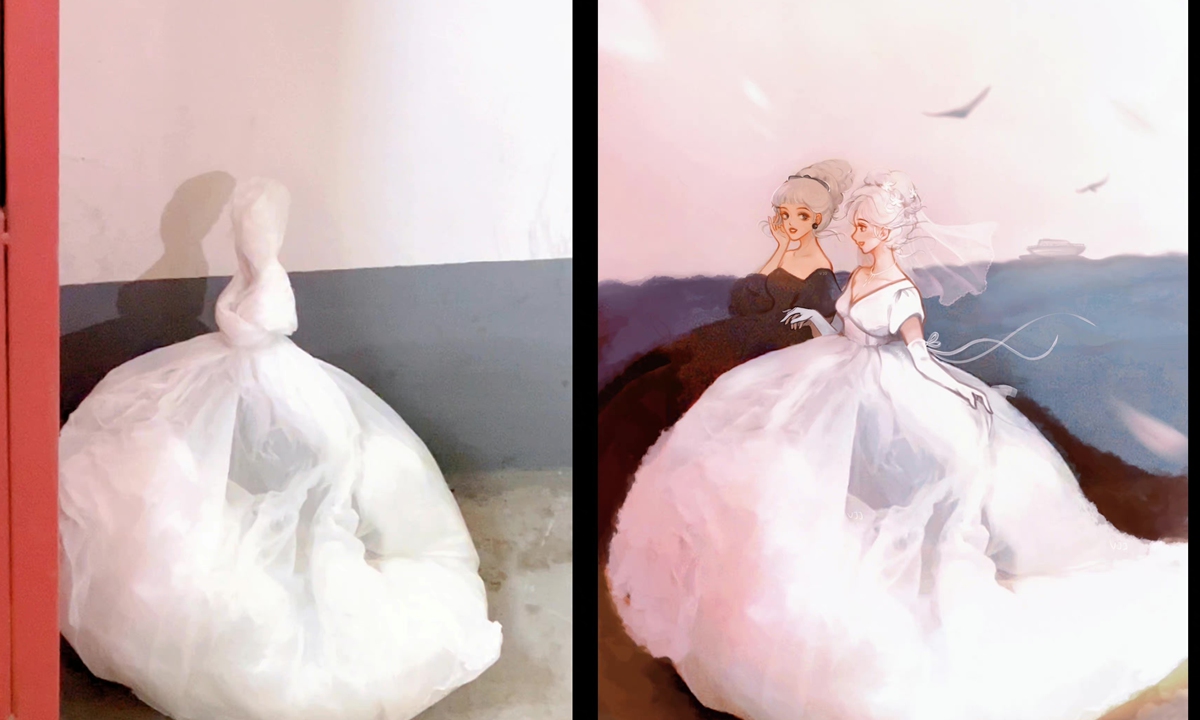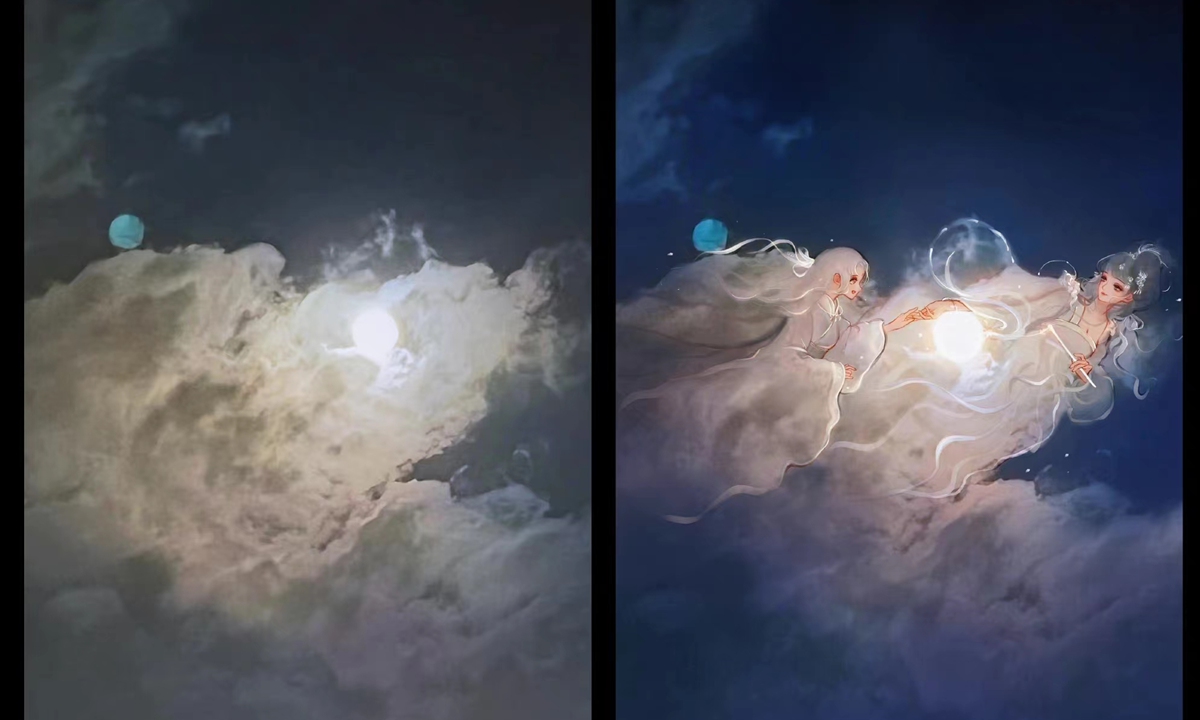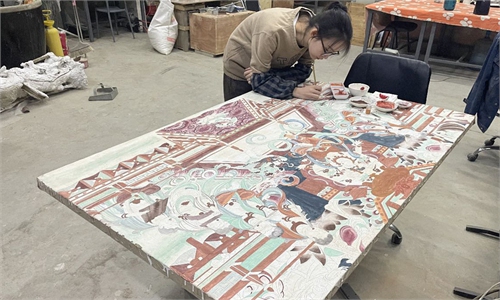ARTS / ART
Young rising Chinese artists call for balanced lifestyles, environmental protection through creation

Young artist Li Weijia has over 860,000 followers on Chinese video-sharing platform Bilibili. She shares her artworks inspired by small things such as sprouting potatoes, used face masks, plastic bags and empty bottles. Photo: Courtesy of Li Weijia
Without the massive use of tools or paints and lacking grand venues to present their artworks, a group of young attention-grabbing domestic artists are tackling an irresistible project: recycling discarded products as art aimed at inspiring people to discover the beauty of their everyday surroundings and raising awareness about environmental protection.
Born in the 1990s, young artist Li Weijia has over 860,000 followers on Chinese video-sharing platform Bilibili who watch her create artworks using sprouting potatoes, used face masks, plastic bags and empty bottles.
"Creativity is everywhere. But more importantly, one needs to pay enough attention to finding these smalls things - slow down and take the time to walk around and observe their surroundings," Li explained.

Photo: Courtesy of Li Weijia
Taking it slow
Inspired by a sprouting potato she saw when first starting to work from home due to the COVID-19 pandemic, Li began making small artworks over the next two years. In 2021, she collected photos of these works into the book Everything is Cute with Spirit.
Sometimes these artworks can be extremely small.
"A clove of garlic less than 1 centimeter long can become Madame White Snake," Li said, referring to the figure from one of China's four classic folk tales The Legend of the White Snake, in which a snake spirit falls in love with a human.
Under Li's hands the veins on an orange become the tails of the nine-tailed fox in ancient Chinese mythology; the knot in a trash bag becomes a skater dog with its board, and the corner of a face mask is transformed into a portrait of medical staff fighting against COVID-19.
Besides looking interesting, her art is also a way to remind her fans of environmental protection.
Her creation Bubble Fairy Sitting on Bottle got its start when she was taking some empty bottles to the recycling bin. Li accidentally took out a green shampoo bottle when she squeezed it a bubble appeared. Taking the bottle back, she added green leaves as a background and snapped a picture as she squeezed another bubble out of the bottle and thus a "fairy" sitting on the bottle was born.
"I use a pen to create tiny pictures on small stuff so you have to carefully observe the artwork to find the trick behind the painting. Painting is not only about technique, but more about a lifestyle where people can record and feel life around them. Meanwhile, they can also notice important issues like the environment," she said.
"People have questioned my form of art. I don't think I'm edgy or grand enough as an artist, but I want to remind my fansof certain things in life," Li wrote in her book.

Photo: Courtesy of Li Weijia
More worthy
In modern society with its constant consumption, young artists like Li are choosing to take more social responsibility, presenting their observations on issues worthy of attention on social media, and using art to express their ideas.
Another young Chinese artist with a similar state of mind is the Shanghai-based Wang Tangtang, who paints on leftover plastic packaging from her online shopping.
The rampant online shopping and delivery industries have created a large number of packages.
In 2018, the express delivery industry in China produced more than 50 billion packages. This huge number caused all levels of society to begin to reflect on how to make the industry greener.
As entrepreneurs, communities and the government began looking for green alternatives for packaging, ways to increase recycling and reduce consumption, young artists have also been using their own means to remind people that "plastic products are hurting the environment we are living in."
In Wang's art, the folds of plastic bags become the brushes she uses to paint on canvas.
A roller brush wrapped with plastic bags paints out long, fine diagonal lines on clean canvas. One of her favorite paintings is Desire and Freedom, in which a human figure swims freely in the ocean, greedily opening his arms to embrace more. But a chaotic and dark background signals bad things on the horizon. What will the greed of human beings bring in the end?
According to Wang, if human beings, driven by desire and self interest, continue to plunder nature, "In the end, the cycle of this biological chain will return the pollution we sent to the sea back to us."
This work expresses that human beings and the marine environment are part of one community.
"I want my works to advocate for people to pay attention to environmental protection, especially the heath of the ocean ecology."


